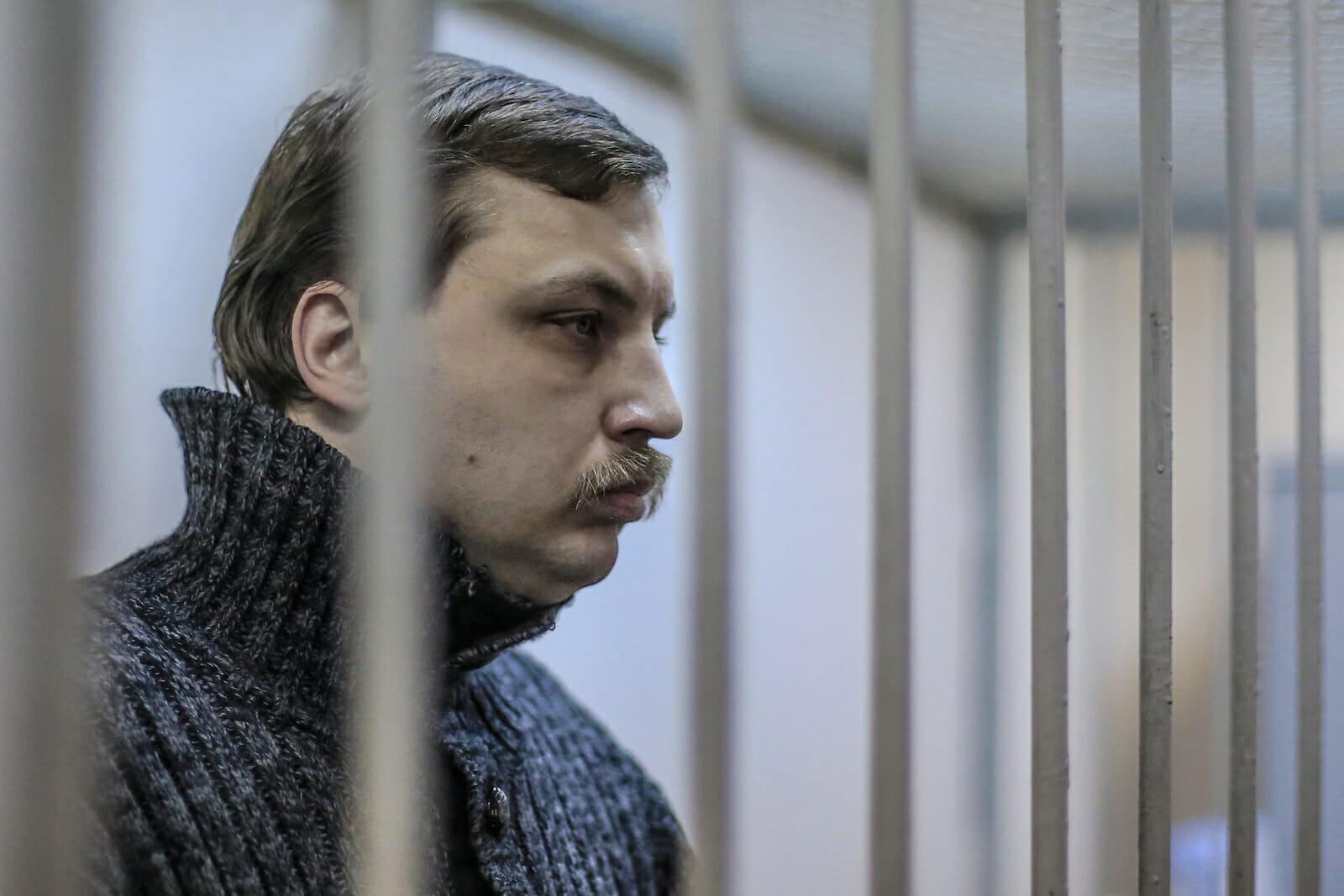
Mikhail Kosenko’s Conviction: A Return to Soviet Punitive Psychiatry
On October 8, Mikhail Kosenko, an opponent of President Vladimir Putin, was arrested after participating in the May 2012 anti-Putin Bolotnaya Square protests for assaulting an officer and taking part in the mass riots and was condemned to indefinite detention in a psychiatric ward. He will be forced to undergo compulsory psychiatric treatment. Kosenko is the second in a series of 28 cases to be found guilty after Maxim Luzyanin was sentenced last year to 4½ years for his involvement in the protests. While Putin’s crackdown on the opposition is certainly nothing new, Kosenko’s sentence sets a dangerous precedent for the other cases, as it signals a return to the Soviet practice of punitive psychiatry.
From the beginning, the case against Kosenko was extremely weak and has been dismissed by some human rights experts as a complete fabrication. The officer whom Kosenko allegedly attacked and left with a concussion has denied that the latter was his aggressor and claimed during his hearing that he did not know the accused. Moreover, video footage showed him as a bystander to the fighting between the police and protesters. According to the New Yorker, the only policeman who identified Kosenko as the aggressor was heard in a closed session.
At the same time, Human Rights Watch emphasizes that, while Kosenko was diagnosed with “sluggishly progressing [i.e. mild] schizophrenia” in 2001, he had been taking medication and has been regularly monitored by doctors, who have emphasized that he was not prone to aggression and had no instances of violence.
The concept of ‘sluggish schizophrenia,’ developed by Soviet psychiatrist Andrei Snezhnevsky and defined as a slowly progressing schizophrenia, is recognized only in Russia’s classification of diseases and other related health problems and is not recognized in international classifications. During Soviet times, the concept was often invoked as a justification for imprisoning political dissidents against the communist regime and placing them on involuntary treatment.
Despite his diagnosed disease, in the early stages of Kosenko’s imprisonment, he has not been given the anti-depressant that he had been taking for over ten years, but was nevertheless submitted to an examination by experts from the state-run Serbsky Center, which used to send dissents to psychiatric hospitals in Soviet times. They concluded that Kosenko is a ‘danger to himself and others’ and is mentally incompetent.
In August 2013, the head of Russia’s Independent Psychiatric Association, Yuri Savenko, told Savenko’s lawyers that the examination was flawed, given that the experts from the Serbsky Center had not taken into account the fact that his medications had been very mild and he had never needed hospitalization. Still, the judge refused to allow an independent examination of Kosenko’s health state, which John Dalhuisen, Amnesty International’s Europe and Central Asia Programme Director, deplored as a breach of fair trial procedure.
The practice of punitive psychiatry was extensively used in Soviet times, especially after Nikita Khrushchev declared in the late 1950s that one had to be ‘mentally ill’ to oppose the communist party leadership. Subsequently, dozens of political dissidents, such as Vladimir Bukovsky, Natalia Gorbanevskaya and Joseph Brodsky, were declared ‘mentally ill’ and submitted to treatment. Writer Bukovsky was declared a ‘psychopath’ and used as a victim of the forced treatment of the Serbsky Institute, which he has extensively described in his work as a state tool of repression.
The practice of punitive psychiatry has continued to be used by Russia’s post-communist regimes. In 2007, the aforementioned Yuri Savenko claimed that the “practice of punitive psychiatry” or “so-called ‘police’ psychiatry, is alive and well,” with 5-7 percent of those in medical facilities being subjected to involuntary treatment. His statements were backed up by Lyubov Vinogradova, the executive director of the Independent Psychiatric Association, who stated that “psychiatry in Russia today is broadening its repressive functions and the use of involuntary measures in relation to citizens.”
Kosenko’s condemnation to punitive psychiatric treatment sets up an unfortunate precedent for all subsequent Bolotnaya Square trials. It firstly highlights the submission of the courts to the regime’s wishes and decisions, meaning that the likelihood of justice being served is extremely dim. In his case, the court has gone against the clear evidence of his innocence to render a terrible punishment that could irreparably destroy his mental health. According to Oleg Orlov, the leader of a leading human rights organization called Memorial, “if someone has committed a terrible crime and is not mentally stable, then there is nothing wrong with psychiatric treatment. But in Kosenko’s case, the evidence proved absolutely 100% that this man had nothing to do with the crimes he is accused of. He did not hit or kick anyone.”
Moreover, Kosenko was certainly not one of the leading figures of last year’s protest. This means that no one is truly safe from the regime’s increasing ire. If he received such a terrifying sentence, what types of punishments can key opposition members expect from Putin’s Soviet-style crackdown? The less Russia’s general public reacts to these cruel punishments, the more leverage it grants to the Kremlin to intensify its oppression of the opposition. Only a few hundred people gathered to hear the verdict in Kosenko’s case. Have Russians become so indifferent to Putin’s behavior that not even the revival of Soviet punitive psychiatric mechanisms can motivate a revolt against an increasingly repressive regime?
